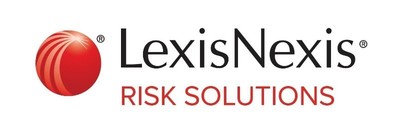 |
ATLANTA, HONG KONG and SHANGHAI, Sept. 13, 2017 /PRNewswire/ -- The emergence of Asia-Pacific as a global leader in fintech (financial technology) can be linked to banks restricting lending during the 2008 financial crisis, however conventional banks are unlikely to fall victim to tech interlopers, according to a new whitepaper from LexisNexis Risk Solutions.
Chris Foye, Manager, Financial Crime Compliance, LexisNexis Risk Solutions, said: "When the 2008 financial crisis hit and some banks started to restrict lending, small businesses were impacted along with other segments of society. This unmet market need coincided with changing customer expectations, including customers increasingly using digital channels, thus reducing the need for 'bricks and mortar' infrastructure."
In countries where the penetration of smartphones and even some social media is greater than that of conventional banks, fintech will be the financial system -- the entire banking infrastructure -- rather than an adjunct to it. And individual firms have the potential to be all, or part of that ecosystem.
"'Challenger banks' have emerged in the UK and elsewhere to disrupt big banking institutions, including crowdfunding/P2P platforms, payment processors and lenders," Mr Foye said. "Yet in recent years there have been no signs -- and no instances -- of banks disappearing due to tech interlopers.
"In Asia-Pacific we have seen an ecosystem of fintech companies emerge that are focusing on the applicability of technology like blockchain, artificial intelligence and biometrics has emerged with the aim of working with conventional financial institutions, rather than replacing them."
Venture capital investment in the fintech sector has been trending upwards for the last five years in Asia, reaching $US5.4 billion in 2016, which accounted for approximately 20 per cent of deals globally and 43 per cent of global funding last year1. Moreover, 16 of the top 100 fintech vendors that gain more than a third of their revenue from financial institutions -- and four of the top nine -- are based in the region2.
With the rapid development of the fintech sector in the region, a key challenge is how to encourage this innovation while regulating digital disruption at the same time.
Mr. Foye said: "Concern is occurring within the industry that this rapid pace of innovation could come at the cost of consumer protection. Moreover, some fintech companies are not adhering to the same regulatory/compliance standard of traditional banks.
"However, solutions are at hand. Banks themselves who have an intimate knowledge of the regulation and compliance obligations relating to their business have established innovation labs to experiment with new technologies and assess their applicability and suitability."
Additionally, regulators have introduced regulatory 'sandboxes', wherein the usual regulatory requirements for financial services firms are relaxed to allow them to experiment. Sandboxes have been deployed widely by regulators in Australia, Hong Kong, Singapore and elsewhere in APAC.
"This concept is beneficial in several ways. Sandboxes can reduce time to market, provide greater choice to consumers and ensure consumer protection is factored in. It also allows fintech companies to gain a better understanding of what is expected of them in terms of regulation and compliance," Mr Foye said.
Sandboxes can also support regulators in developing financial services. The Hong Kong Monetary Authority (HKMA) has stated that its Fintech Innovation Hub, ostensibly set up to host "proof of concept trials", could also allow the authority to "explore the use of emerging technologies to enhance the efficiency and efficacy of the HKMA in discharging our duties.3"
Big data, natural language processing and artificial intelligence are now expected to play a key role in regulation, particularly in areas such as Know Your Client (KYC). Big data is increasingly used to gain a more complete picture of customers by trawling, and grouping together, disparate pools of data before unimportant or duplicated information is discarded.
"Many financial institutions are taking this a step further through collaboration," Mr Foye said. "In particular, this is happening in KYC where current processes are very time and resource intensive. Financial institutions are recognizing that matching headcount to the regulatory burden and customer volume is not a sustainable model, so they are looking to derive efficiencies without compromising regulatory obligations."
One way of doing this is through a shared utility, which can increase efficiency through standardized KYC, scrutinizing big data inputted from a range of institutions, without the need to increase headcount.
Asia Pacific authorities are backing this idea, even to the extent of utilizing government technology infrastructure and databases. Indonesia recently opened its national ID card database up to financial institutions; India is considering a similar move with its 'Aadhar' data; and Singapore has trialed a national KYC utility based on government-operated digital identity service MyInfo4.
Mr Foye concluded: "The emergence of fintech should be embraced as it promotes financial inclusion, targets segments which have been 'de-risked' and provides greater choice for the consumer.
"It is also important to ensure consumer rights are upheld and fintechs adhere to the same regulatory/compliance standards as the rest of the industry to ensure new risks are not introduced that undermines the integrity and stability of the financial system."
About LexisNexis® Risk Solutions
At LexisNexis Risk Solutions, we believe in the power of data and advanced analytics for better risk management. With over 40 years of expertise, we are the trusted data analytics provider for organizations seeking actionable insights to manage risks and improve results while upholding the highest standards for security and privacy. Headquartered in metro Atlanta USA, LexisNexis Risk Solutions serves customers in more than 100 countries and is part of RELX Group, a global provider of information and analytics for professional and business customers across industries. For more information, please visit http://www.lexisnexis.com/risk/intl/en/.
1 Source: The Global Fintech Report: 2016 in Review, CBInsights
2 http://fintechnews.sg/5396/fintech/top-100-fintech-vendors-that-derive-more-than-13-of-their-revenue
3 http://www.hkma.gov.hk/media/eng/doc/key-functions/finanical-infrastructure/20160906e1-ai.pdf
4 https://www.regulationasia.com/india-singapore-guangdong-join-shift-id-card-based-kyc/